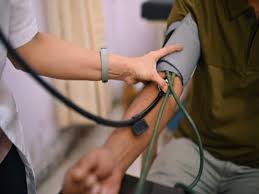
Daniel Otera
The World Health Organisation (WHO) has raised a fresh alarm over the global threat of hypertension, warning that 1.4 billion people are currently living with the condition, with only one in five having it under control.
The disclosure came on Tuesday in New York at the launch of WHO’s second Global Hypertension Report, held on the sidelines of the 80th United Nations General Assembly and co-hosted with Bloomberg Philanthropies and Resolve to Save Lives.
According to the report, hypertension remains the leading cause of heart attack, stroke, kidney disease, and dementia. WHO noted that without urgent intervention, millions more will die prematurely, while low- and middle-income countries will continue to suffer significant economic losses.
Between 2011 and 2025 alone, cardiovascular diseases linked to high blood pressure are projected to cost these countries about $3.7 trillion—nearly two per cent of their combined gross domestic product (GDP).
The report highlighted stark inequalities in treatment access. While 93 per cent of high-income countries reported that all WHO-recommended hypertension medicines are available in pharmacies and primary health centres, only 28 per cent of low-income countries could say the same.
Dr Tom Frieden, President and Chief Executive Officer of Resolve to Save Lives, described the gap as “unacceptable”, stressing that safe and low-cost medicines already exist but remain out of reach for far too many.
He added: “Closing that gap would save lives and save billions of dollars every year.”
Director-General of WHO, Dr Tedros Adhanom Ghebreyesus, lamented the heavy toll, noting: “Every hour, more than 1,000 lives are lost to strokes and heart attacks caused by high blood pressure, and most of these deaths are preventable.”
Alongside the hypertension warning, WHO urged caution over emerging claims linking acetaminophen (paracetamol) use in pregnancy with autism.
WHO spokesperson, Tarik Jasarevic, said: “Some observational studies had suggested a possible association, but evidence remains inconsistent. Several later studies have found no such relationship.”
He advised researchers and the public to approach such claims with caution until stronger scientific evidence is established.
The report underscored the urgency of strengthening supply chains, improving procurement systems, and ensuring better prescribing and dispensing of hypertension medicines. WHO emphasised that blood pressure drugs remain among the most cost-effective public health tools available today.
